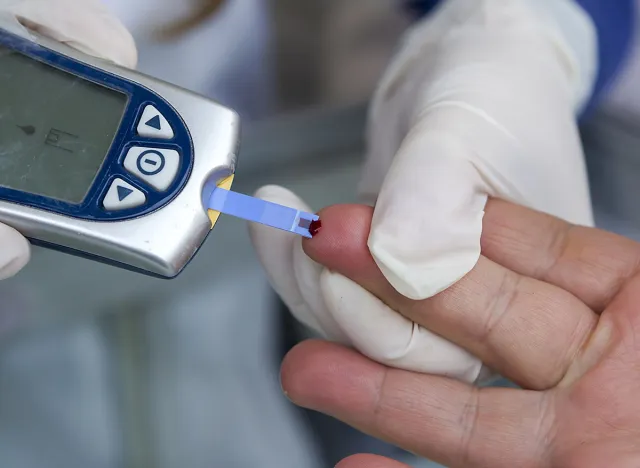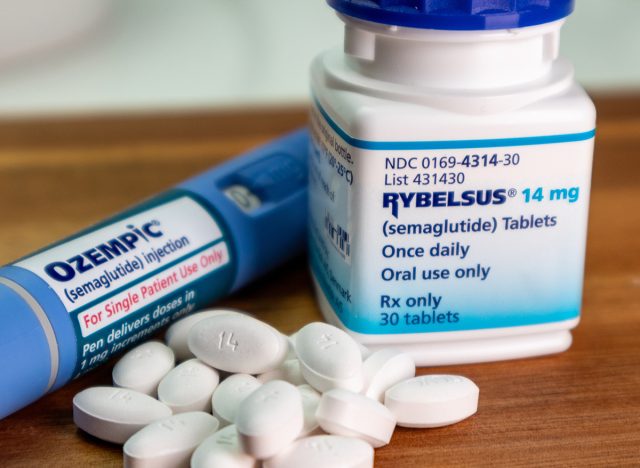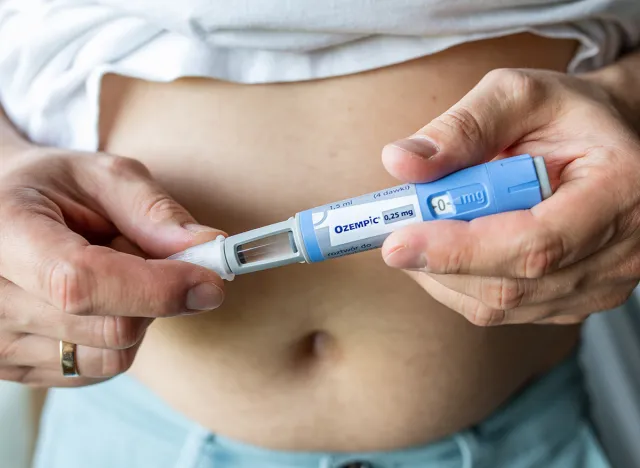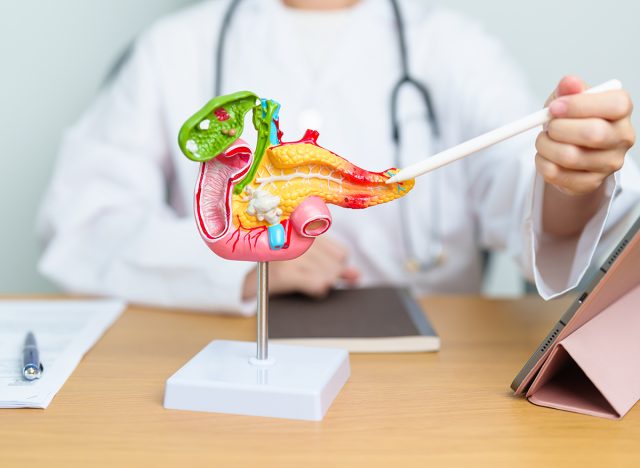10 Critical Things You Need to Tell Your Doctor Before Starting Ozempic

Are you considering going on Ozempic or another GLP-1 drug in order to lose weight? Before you meet with your doctor, there are several things you should think about — including what to tell them about your health history and future plans. Triple-board-certified plastic surgeon Leo Lapuerta, MD, The Plastic Surgery Institute of Southeast Texas, reveals 10 critical things you need to tell your MD before starting Ozempic for weight loss.
A Personal or Family History of MEN2

There are several health conditions that you need to disclose to your doctor, starting with a personal or family history of Multiple Endocrine Neoplasia Syndrome Type 2 (MEN2), Dr. Lapuerta explains. "MEN2 syndrome usually causes thyroid gland, parathyroid gland, or adrenal gland tumors. The tumors may be benign (not cancer) or malignant (cancer)," explains the National Cancer Institute.
RELATED: 20 Things You Need to Know About Ozempic and Weight Loss
A Personal or Family History of Thyroid Tumors

Another health condition that needs to be disclosed? "Personal or family history of Thyroid tumors, particularly medullary thyroid cancer or C-Cell tumors of the thyroid," says Dr. Lapuerta.
You or Your Partner May Be Pregnant

Is there any chance that you or your spouse is expecting? Lapuerta stresses the importance of revealing if there is any possibility of pregnancy in patients.
RELATED: 20 Possible Ozempic Side Effects
You Are or Are Planning to Breastfeed

Also, new moms need to figure out their nursing plans. "If you are breastfeeding or planning to breastfeed," you need to tell your MD, says Dr. Lapuerta.
RELATED: What Happens to Your Body When You Stop Eating Veggies
You Are On Blood Sugar Medication

Any medication should be disclosed to your MD. However, "if you take any medications which lower your blood sugar," they really need to know.
You Are Taking Other GLP-1 or Diabetes Medication

Are you already taking weight loss or diabetes medications? "If you use any other GLP-1 or diabetic medication," Lapuerta stresses the importance of revealing that to your doctor.
RELATED: 9 Key Differences Between Ozempic and Other GLP-1 Meds for Weight Loss
You Have Negatively Reacted to GLP-1s in the Past

Have you already taken a weight loss drug, and it didn't go well? "Any history of sensitivity or a negative reaction to any GLP-1 agonist" needs to be disclosed.
History of Pancreatitis

Another health condition you should be vocal about? History of pancreatitis, says Dr. Lapuerta. Research has found a link between the drugs and increase in the condition.
History of Gallbladder Disease

You should also discuss any history of gallbladder disease/stones. The drug may increase the risk of gallbladder disease at higher doses or for longer periods of time, according to research.
RELATED: 20 Possible Ozempic Side Effects
History of Renal Insufficiency

Do you suffer from kidney issues? Any history of renal insufficiency or disease should also be disclosed. And if you enjoyed this article, don't miss 20 Incredible Ozempic Success Stories of All Time.




